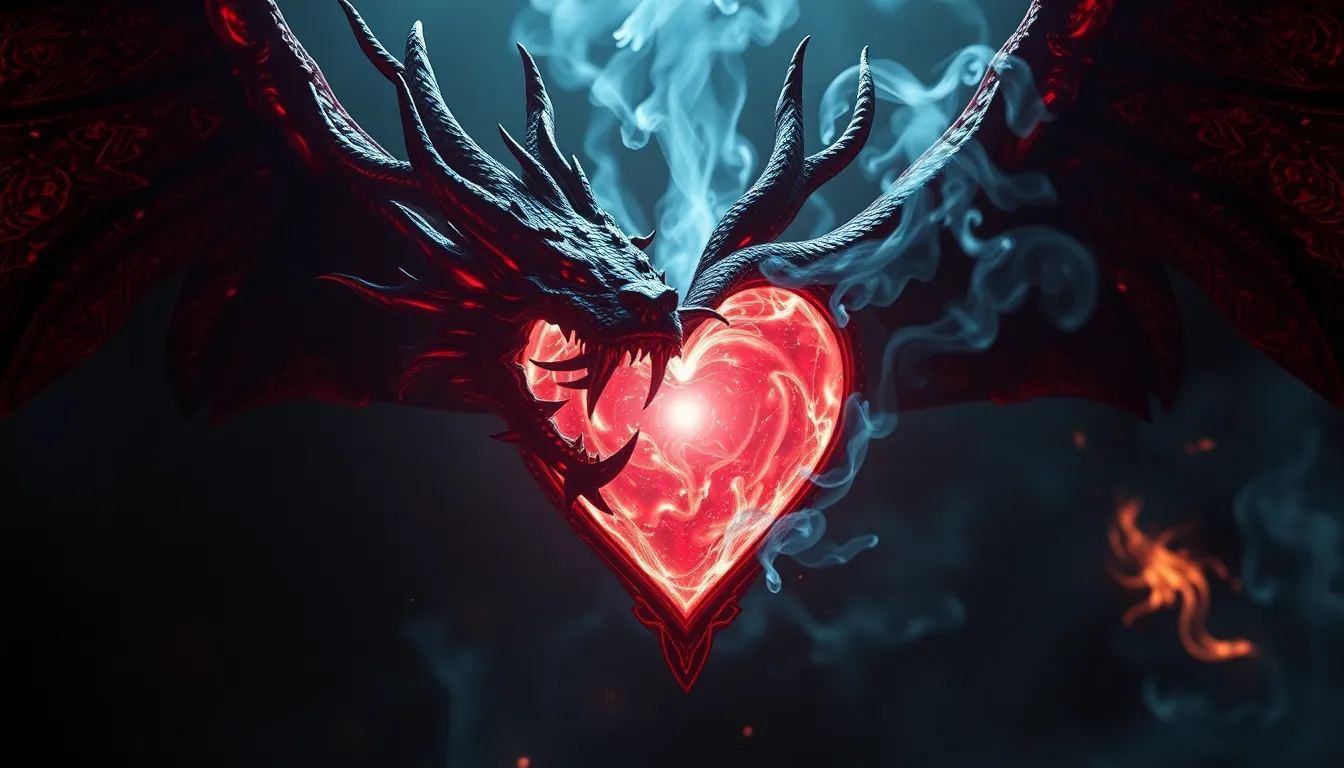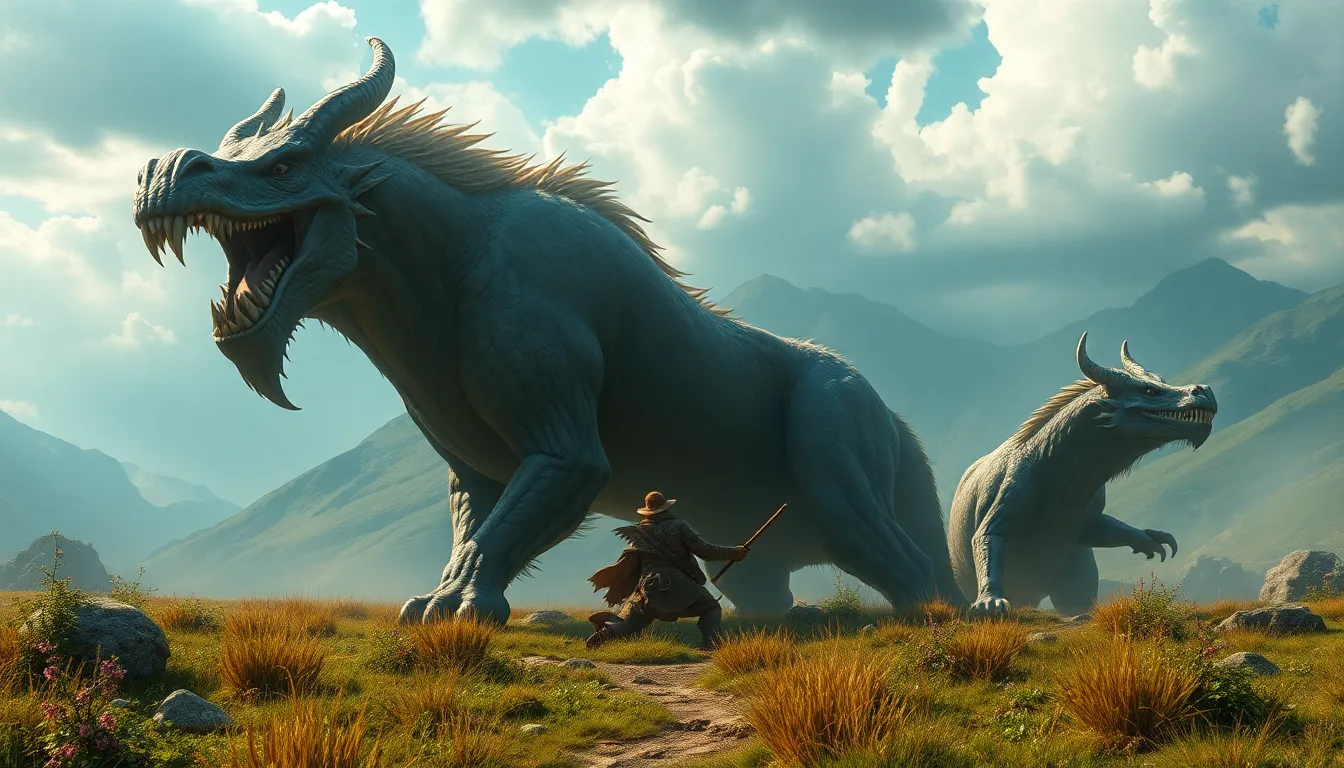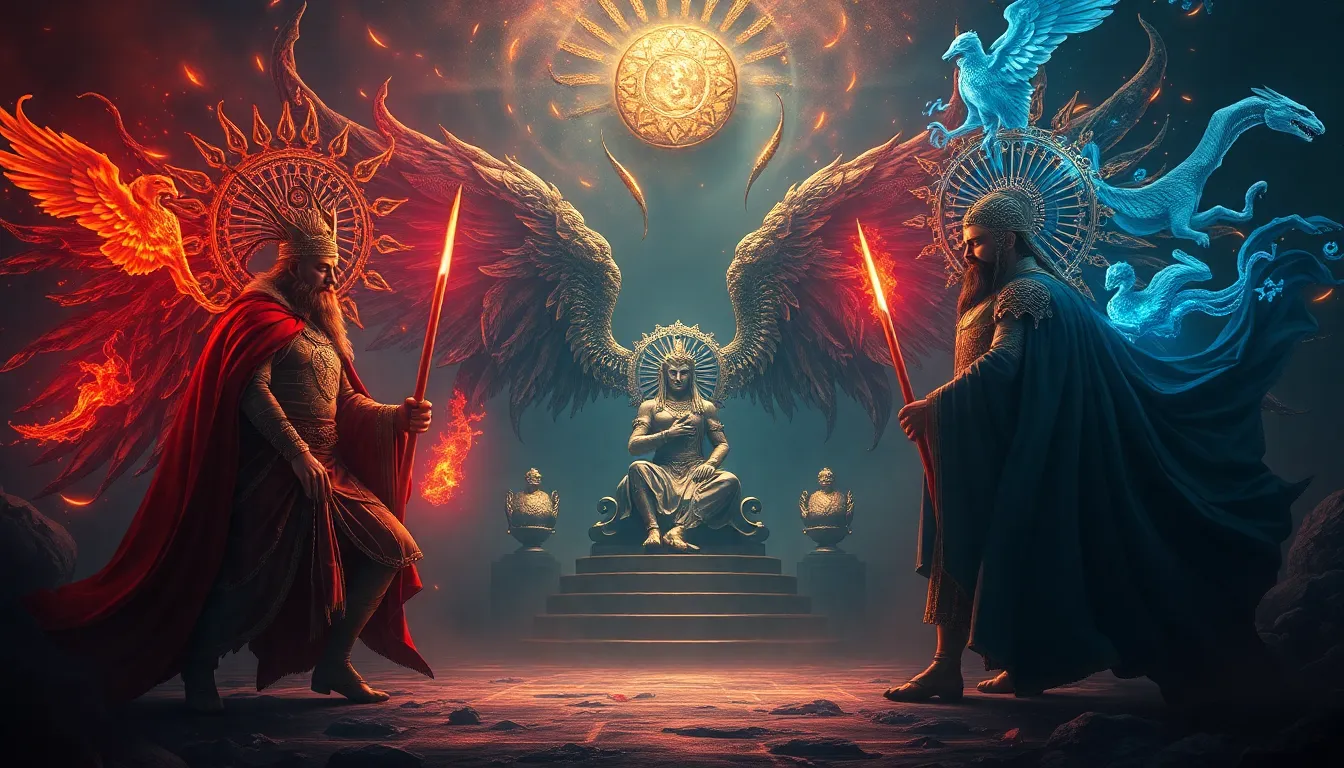The Myth of the Dragon’s Heart: A Magical Artifact of Power
I. Introduction to the Legend of the Dragon’s Heart
The Dragon’s Heart is a captivating element of folklore and mythology, representing not only immense power but also the deep-rooted connections between humanity and the mystical world. This legendary artifact has been woven into the fabric of various cultures, symbolizing a plethora of themes, from bravery to sacrifice.
Magical artifacts like the Dragon’s Heart serve significant roles in cultural narratives, often acting as catalysts for heroism or as symbols of ultimate power. They embody the struggles, desires, and fears of the societies that tell their stories.
This article aims to explore the origins, meanings, and impact of the Dragon’s Heart myth, shedding light on its importance in historical and contemporary contexts.
II. Historical Origins of the Dragon’s Heart Myth
The origins of the Dragon’s Heart myth can be traced back to ancient civilizations that revered dragons as powerful beings. In many cultures, dragons were seen as both protectors and destroyers, embodying the dual nature of creation and destruction.
- Ancient Civilizations: In Mesopotamia, dragons represented chaos and were often depicted in conflict with gods.
- Eastern Cultures: In China, dragons symbolize good fortune and are seen as auspicious creatures.
- Western Mythology: In medieval Europe, dragons often guarded treasures, leading to tales of knights seeking glory by vanquishing them.
The Dragon’s Heart has evolved through these different cultures, taking on unique meanings and characteristics. Key texts, such as the Epic of Gilgamesh and various European fairy tales, reference dragons and their hearts, cementing their place in mythological lore.
III. Symbolism of the Dragon in Mythology
Dragons are rich with symbolism, representing a complex interplay of power, wisdom, and chaos. They are often seen as guardians of treasures and knowledge, embodying a deep, mystical connection to nature and the cosmos.
- Power: Dragons represent unparalleled strength and authority, often serving as formidable adversaries or wise mentors.
- Wisdom: Many myths depict dragons as ancient beings, holding vast knowledge and insight.
- Chaos: Conversely, dragons can symbolize destruction and chaos, representing the uncontrollable forces of nature.
The duality of dragons is evident in various narratives, where they can be either benevolent figures providing guidance or malevolent beings posing great threats.
IV. Characteristics of the Dragon’s Heart
The Dragon’s Heart is often described with vivid and fantastical attributes, representing its unique powers and significance. Various tales offer different physical descriptions, but common themes emerge.
- Physical Attributes: The heart is typically depicted as radiant, pulsating with energy, and imbued with magical properties.
- Powers: Legends attribute various abilities to the Dragon’s Heart, including:
- Immortality
- Enhanced strength
- Magical prowess
The journey to obtain the Dragon’s Heart is fraught with trials and tribulations, often requiring the hero to confront their fears, face formidable foes, and demonstrate unwavering courage.
V. Cultural Variations of the Dragon’s Heart Legend
The Dragon’s Heart myth has numerous cultural variations, each reflecting the values and beliefs of the society from which it originates.
- Eastern Mythology: In Chinese lore, the Dragon’s Heart symbolizes harmony and balance, often associated with the elemental forces.
- Western Interpretations: In European tales, the heart is often a sought-after treasure, representing glory and valor.
- Regional Variations: In Africa, dragons are sometimes depicted as ancestral spirits, with their hearts embodying the wisdom of the ages.
These variations highlight the adaptability of the Dragon’s Heart myth, showcasing its ability to resonate across different cultures and eras.
VI. The Dragon’s Heart in Popular Culture
The Dragon’s Heart has transcended its mythological origins, finding a prominent place in modern literature and cinema. Its influence is evident in various forms of storytelling.
- Literature: Authors like J.R.R. Tolkien and George R.R. Martin have drawn inspiration from dragon lore, integrating the Dragon’s Heart into their narratives.
- Cinema: Films such as How to Train Your Dragon and The Hobbit feature dragons and their symbolic hearts, captivating audiences worldwide.
- Video Games: The Dragon’s Heart often serves as a quest item or powerful artifact in role-playing games, influencing gameplay and narrative.
This enduring legacy in popular culture underscores the Dragon’s Heart’s significance as a symbol of power and adventure.
VII. The Psychological and Emotional Significance of the Dragon’s Heart
The myth of the Dragon’s Heart resonates on a psychological level, serving as an archetype within the collective unconscious. It embodies themes of personal power and courage, inviting individuals to explore their inner strengths.
- Archetypes: The Dragon’s Heart represents the hero’s journey, where overcoming challenges leads to self-discovery.
- Metaphor: It symbolizes the courage needed to confront one’s fears and pursue personal growth.
- Lessons: The myth teaches valuable lessons about bravery, sacrifice, and redemption, encouraging individuals to rise above adversity.
VIII. The Role of Magical Artifacts in Storytelling
Magical artifacts play crucial roles in storytelling, often serving as focal points in hero’s journey narratives. The Dragon’s Heart can be compared to other notable artifacts, such as Excalibur or the One Ring.
- Narrative Function: Artifacts like the Dragon’s Heart drive the plot, presenting challenges and opportunities for characters.
- Themes: Common themes associated with magical artifacts include the balance of power and the responsibility that comes with great strength.
The Dragon’s Heart, like other magical artifacts, embodies the struggle between good and evil, underscoring the complexities of human desires and motivations.
IX. Modern Interpretations and Adaptations of the Myth
In contemporary literature and media, the Dragon’s Heart has been reimagined to reflect modern sensibilities while maintaining its core themes. It serves as a symbol in modern fantasy and gaming communities, representing the timeless allure of dragon lore.
- Reimaginings: Authors and creators are continually reinventing the Dragon’s Heart myth, exploring new narratives and contexts.
- Symbolism: In modern gaming, the Dragon’s Heart often signifies a player’s growth and achievement, rewarding courage and determination.
Through these adaptations, the Dragon’s Heart remains a powerful symbol of adventure, courage, and the eternal struggle for personal and collective power.



